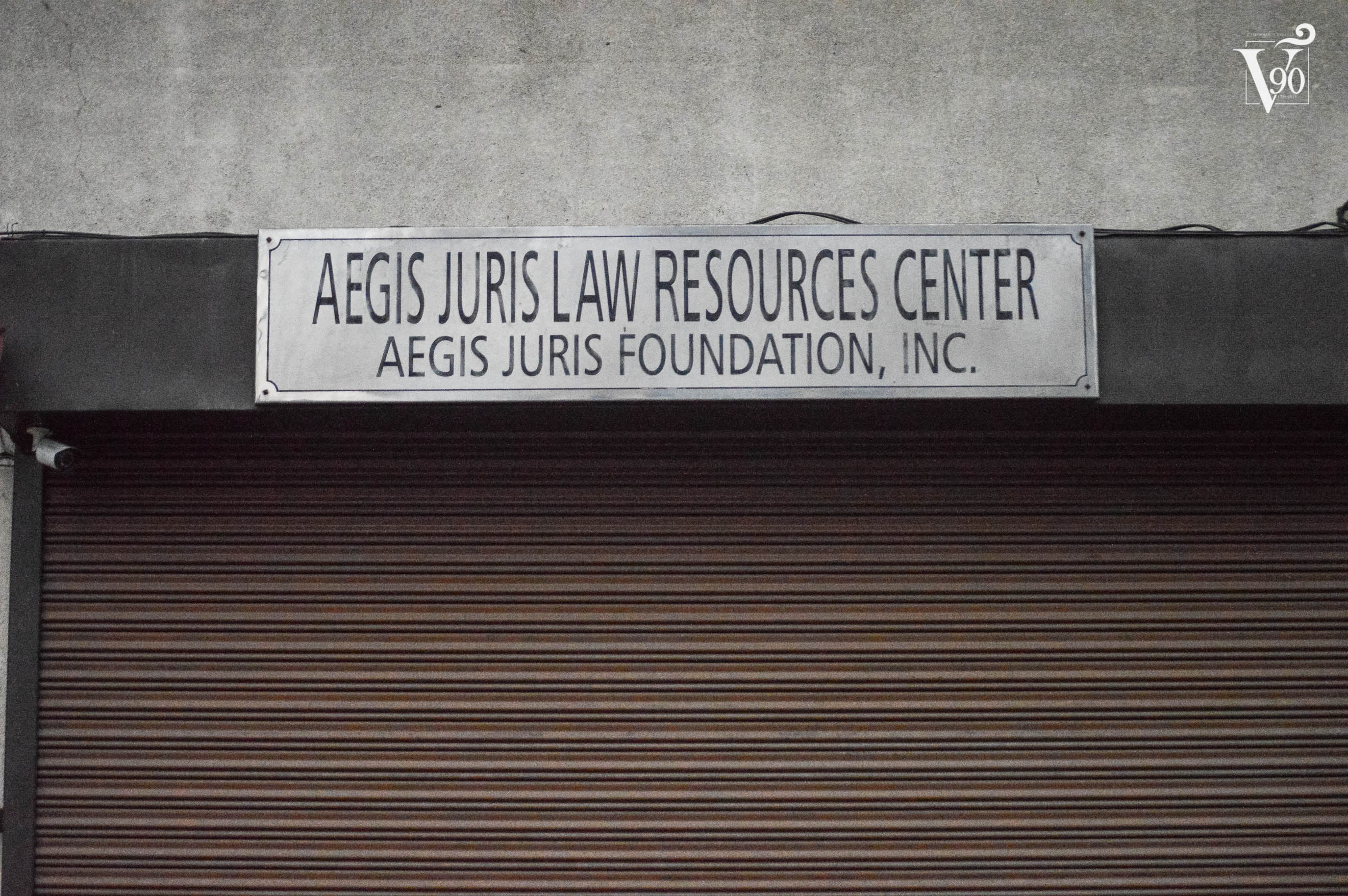THE MOTHER of slain UST law freshman Horacio “Atio” Castillo III is urging the University to release the names of the eight Civil Law students expelled for their involvement in the hazing death.
In a text message to the Varsitarian, Carmina Castillo said the UST administration should release the report of the investigating committee formed by University Rector Fr. Herminio Dagohoy, O.P.
“We would like their investigative panel to release publicly the committee report and the list containing the students involved in the hazing of our son Atio,” she said. “We have the right to know and this is important to me as the mother.”
Carmina said it was unreasonable for the University to announce the expulsion of the law students without naming them.
“We want to see their full investigation and report to remove all doubts or biases. We don’t know the reason for publicly announcing that they expelled eight students but [without] reveal their names. Why announce in the first place when obviously the public would ask for the names?” she said.
Carmina lauded UST’s decision to expel eight law students involved in her son’s death but said Civil Law faculty members linked to Aegis Juris, the law fraternity implicated in Atio’s death, should also be held accountable.
“We thank UST for their actions but they still need to answer a lot of questions, like how about the faculty members? [T]hey are as much involved since they knew about Atio’s death Sunday morning or noon and they did not even call the police to report or at least surrender to the police the fraternity members,” Carmina said.
“UST should investigate further that Aegis Juris practices hazing…UST should have acted on this beforehand. Well, better late than never,” she added.
Carmina said the family would push through with the complaint against UST before the Vatican.
University officials said releasing the names of the expelled students would violate the Data Privacy Act.
In a statement last Feb. 18, UST said it kicked out the eight law students after the committee found them guilty of violating the University’s Code of Conduct and Discipline, meriting the “supreme penalty of expulsion.”
The panel, composed of six UST administrators and a representative from the Central Student Council, said it would continue its probe “to “ferret out the truth, determine liability, and impose the appropriate sanctions.”
“The University reiterates its commitment to ferret out the truth, determine liability, and impose the appropriate sanctions. In the Eucharistic celebrations held at the UST Faculty of Civil Law, at the Santuario de San Antonio during the wake and at the UST Chapel during the day of mourning for the death of Horacio, UST has always been one with the Castillo family in the steadfast call for everyone to pray and work together to achieve justice for Horacio and for truth to prevail,” the statement read.
Formed by Dagohoy on Sept. 19, two days after Atio died, the committee said it observed due process and conducted hearings in the presence of representatives of the Legal Education Board.
The 22-year-old Atio died in September of last year after undergoing hazing in the initiation rites of Aegis Juris, a law-school based fraternity that counts Dean Nilo Divina as part of its alumni.
Gerardo Castillo, Atio’s uncle, told the Varsitarian he was “delighted” that UST “finally initiated what is due for Atio.”
Divina said he would implement the investigating committee’s resolution.
“The committee has exercised the authority and carried out the mandate that the University has given. The Faculty of Civil Law will implement the committee’s resolution,” Divina told the Varsitarian.
Palace hails expulsion of law students
UST’s decision to expel its eight law students tagged in the hazing death of Atio was also hailed by Malacañang.
In a press briefing, presidential spokesman Harry Roque Jr. said the University’s decision sent a message that violence is not tolerated in campuses.
“[W]e think it’s the right step forward. Expelling them sends the message that [we] will not tolerate violence in our campuses,” Roque said.
Roque said the move was “only the beginning” as all those who violated the Anti-Hazing Law should be held accountable.
“There will have to be criminal prosecution for violating the Anti-Hazing Law,” he said.
‘Atio Castillo Law’
The Senate approved a ban on all forms of hazing last Feb. 14, naming the bill after the slain law freshman.
Nineteen senators voted in favor of the bill, which amends Republic Act 8049 or the Anti-Hazing Law of 1995 and imposes harsher penalties..
Sen. Panfilo Lacson said the bill sought to prohibit hazing in initiation rites entirely, contrary to the existing anti-hazing law that permitted hazing provided that the fraternity, sorority or organization submitted a written notice to the school seven days before the initiation.
The bill seeks lifetime imprisonment and a fine of P3 million on those who participated in hazing rites that lead to death, rape, sodomy or mutilation.
Hazing was redefined in the bill as “any physical or psychological suffering, harm or injury inflicted on a recruit, member, neophyte or applicant as a form of initiation rite or practice made as a prerequisite for admission or a requirement for continuing membership in a fraternity, sorority or organization.”
“Paddling, whipping, beating, branding, forced calisthenics, exposure to the weather, forced consumption of any food, liquor, beverage, drug… [and] any other brutal treatment or forced physical activity” which would affect the physical and psychological health of the neophyte are acts of hazing.
Lawyer Lorna Kapunan, legal counsel of the Castillo family, had proposed amendments to the Anti-Hazing Law.
Among the amendments are requiring fraternities, sororities and similar organizations to submit the name of a faculty adviser who should have knowledge of, and consent to, the activities of these organizations.
At least two school officials are required to oversee initiation rites and submit a report of everything that transpired during the initiation to the school administration.
Participating officers and members of the fraternity, sorority or organization will be fined P1 million and sent to 12 to 17 years in prison if proven to have committed violations.
If hazing occurred and the school failed to assign a representative to the initiation rite, a fine of P1 million will be imposed on the school.
A fine of P1 million and imprisonment of 12 to 14 years will also be imposed on alumni and non-resident members of a fraternity or sorority who obstruct justice.
The bill was authored by senators Gregorio Honasan, Sherwin Gatchalian, Loren Legarda, Juan Miguel Zubiri, Paulo Benigno Aquino IV and Lacson.
















